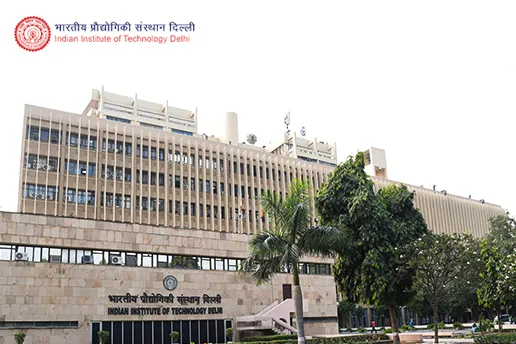
The Indian banking system is one of the largest and most advanced in the world, with a large number of public and private sector banks, regional rural banks, and foreign banks operating within the country. These banks play a crucial role in the growth and development of the Indian economy by providing various financial services to individuals, businesses, and the government.
Foreign banks, as the name suggests, are banks that are headquartered in a different country but have operations in India. They play a significant role in the Indian banking sector by providing competition, improving services, and attracting foreign investment. These banks bring with them international expertise, technology, and financial services that can complement and enhance the existing banking system in India.
Historical Overview
The presence of foreign banks in India dates back to the late 19th and early 20th centuries, with the establishment of branches of foreign banks in major cities like Mumbai and Kolkata. Over the years, the regulations and policies governing the operations of foreign banks in India have evolved significantly. In the initial stages, foreign banks faced restrictions on their operations and the types of services they could offer, but as the Indian economy grew, these restrictions were gradually relaxed, and foreign banks were allowed to expand their operations.
The impact of foreign banks on the Indian economy has been mixed. On the one hand, foreign banks have brought in advanced technology and financial services, improving India’s overall banking system and making it more competitive. They have also brought in significant foreign investment, which has contributed to the economy’s growth. On the other hand, some argue that the entry of foreign banks has increased competition and reduced the market share of local banks, leading to job losses and consolidation in the banking sector.
Overall, foreign banks have played a crucial role in the development of the Indian banking sector and have brought in international expertise, technology, and financial services that have helped improve the banking system in India.
Table of Contents
Advantages of Foreign Banks in India
The presence of foreign banks in India has several advantages, including:
1. Technological advancements
Foreign banks bring with them advanced technology and digital banking solutions, which have helped improve the overall banking system in India. This has made banking services more accessible, convenient, and efficient for customers.
2. Increased competition
The entry of foreign banks has increased competition in the Indian banking sector, which has led to better products and services being offered to customers. This has helped improve the quality of banking services and increase customer satisfaction.
3. Access to global financial markets
Foreign banks have access to global financial markets and can provide their customers with access to a wider range of financial products and services. This has helped increase the competitiveness of the Indian banking sector and attract more foreign investment into the country.
4. Improved financial services
Foreign banks bring with them international expertise and best practices, which have helped improve the quality of financial services offered in India. This has increased customer satisfaction and greater financial inclusion, especially in rural and underdeveloped areas.
In summary, the presence of foreign banks in India has brought several advantages, including technological advancements, increased competition, access to global financial markets, and improved financial services.
Challenges faced by Foreign Banks in India
1) Stringent regulations
Foreign banks in India face several regulations, including those related to capital requirements, banking licenses, and compliance with local laws and regulations. These regulations can be stringent and can impact the efficiency and profitability of foreign banks in India.
2) Cultural differences
Foreign banks may also face challenges related to cultural differences, including different business practices and customer expectations. This can make it difficult for foreign banks to fully integrate into the local market and compete effectively with local banks.
3) Competition with local banks
Foreign banks face significant competition from local banks, who are well-established in the market and have a better understanding of local customers and market dynamics. This can make it challenging for foreign banks to gain market share and compete effectively.
4) Managing the balancing act between local and global operations
Foreign banks in India must also balance their local and global operations, which can be challenging as they need to comply with local regulations and meet the expectations of both local and international customers.
Impact on the Indian Banking System
1) Competition
The presence of foreign banks in India has increased competition in the banking sector, which has led to better products and services being offered to customers.
2) Improved services
Foreign banks bring with them international expertise and best practices, which have helped improve the quality of financial services offered in India.
3) Access to capital and expertise
Foreign banks can provide access to capital and expertise, which can help support the growth and development of the Indian economy.
4) Pressure to adopt best practices
The entry of foreign banks has also put pressure on local banks to adopt best practices and improve their services, which has helped improve the overall banking system in India.
In summary, while the presence of foreign banks in India has brought several benefits, they also face challenges such as stringent regulations, cultural differences, competition with local banks, and the need to balance local and global operations. The impact of foreign banks on the Indian banking system has been positive, including increased competition, improved services, access to capital and expertise, and pressure to adopt best practices.
Dr. D. Y. Patil Vidyapeeth, Pune (Deemed to be University) has established the Centre for Online Learning to provide students with flexible and accessible education options. One of the programs offered through the Centre is an Online BBA Course. This online BBA degree in India program is designed to equip students with the skills and knowledge necessary to succeed in a rapidly changing business environment. The program covers subjects such as accounting, finance, marketing, and management and is taught by experienced faculty members using state-of-the-art technology. The program’s online format allows students to complete their coursework at their own pace and on their own schedule, making it an ideal option for students unable to attend traditional, on-campus programs. With its well-rounded curriculum and flexible delivery format, the Online BBA Degree Program at Dr. D. Y. Patil Vidyapeeth is an excellent option for students seeking to enhance their business knowledge and skills.
To Conclude
Foreign banks have played an important role in the Indian banking system, bringing in advanced technology, increased competition, access to global financial markets, and improved financial services. However, they also need to overcome several challenges, such as stringent regulations, cultural differences, competition with local banks, and the need to balance local and global operations.
Going forward, it is expected that foreign banks will continue to play an important role in the Indian banking system as the Indian economy continues to grow and evolve. The government is likely to continue to ease regulations and open up the sector to more foreign investment, which will provide opportunities for foreign banks to expand their operations in India.










